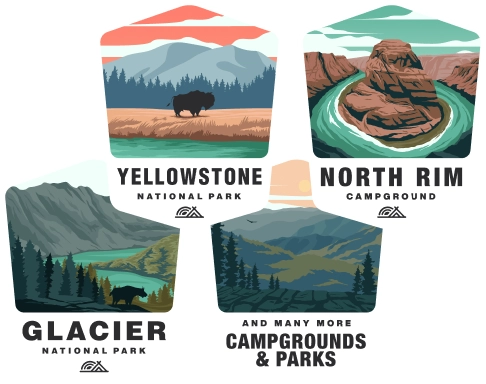Camping at Atlanta State Park
About Atlanta State Park
Location:
Atlanta State Park is a Texas state park located on Wright Patman Lake in the Piney Woods of northeastern Texas. It is approximately 11 miles northwest of Atlanta, Texas.
Park Size:
The park spans around 1,475 acres on the south shore of the lake, offering plenty of space for a variety of outdoor recreational activities.
Camping Information
Campsite Types:
- Full Hookup Sites: These sites include water, electricity, and sewer connections for RVs.
- Water and Electricity Sites: Ideal for tents and RVs, providing both water and electricity.
- Primitive Sites: For those who prefer a more rustic experience without connections. These may require a short hike to access.
Amenities:
- Picnic tables
- Restrooms with showers
- Fire rings or grills
- Tent pads
- Dump stations for RVs
Reservations:
- Reservations for campgrounds can usually be made in advance online or by phone, and they are highly recommended, especially during peak seasons.
Campsite Capacity:
- Each site typically has a limit on the number of vehicles and people allowed. Be sure to check the specific park regulations when booking your site.
Recreational Activities
- Fishing: Wright Patman Lake is known for bass, catfish, and crappie fishing.
- Boating: There's a boat ramp in the park, allowing easy access to the lake for boating activities.
- Hiking: Trails of varying lengths and difficulty provide scenic views of the lake and surrounding forest.
- Wildlife Watching: The park is home to a variety of wildlife, including white-tailed deer, squirrels, and numerous bird species.
- Picnicking: Day-use areas are available with scenic views for picnicking.
Important Regulations
Fires:
- Check in advance for any burn bans; fires must be confined to rings or grills provided by the park.
Pets:
- Pets are typically allowed but must be kept on a leash and supervised at all times.
Alcohol:
- Alcohol consumption is regulated within state parks, so it's important to follow the specific rules for Atlanta State Park.
Quiet Hours:
- Most parks enforce quiet hours during the evening and early morning hours to ensure a peaceful environment for all campers.
Wildlife Protection:
- It's crucial to avoid feeding wildlife to prevent habituation and potential harm to both animals and humans.
Weather Considerations
The region experiences a humid subtropical climate with hot summers and mild winters. It's important to prepare for the weather conditions you'll encounter, particularly if you're camping in extreme temperatures or during the rainy season.
Always check the park's official website or contact the park directly for the most up-to-date and detailed information about camping and activities before planning your trip.
